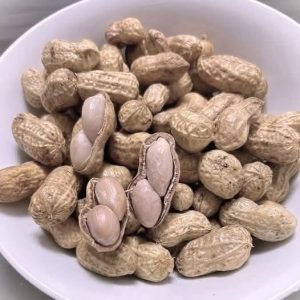When it comes to managing blood sugar, few people realize how powerful vegetables can be. Certain plant foods act almost like natural medicines—helping the body balance glucose levels, improve insulin sensitivity, and protect blood vessels and nerves from diabetic damage.
If you’re looking for foods that naturally help reduce excess sugar in the body, here are ten science-backed vegetables (plus one special bonus food) that support stable blood sugar and long-term health.
1. Broccoli — The Sugar-Burning Superfood
Why it helps:
Broccoli contains a compound called sulforaphane, known for its anti-diabetic and anti-inflammatory effects. It not only lowers blood sugar but also protects blood vessels from oxidative damage—one of the major complications of diabetes.
How to use:
Steam or lightly sauté broccoli to preserve nutrients. Eat it three to four times a week as a side dish or add it to soups, omelets, or salads. For extra antioxidant power, drizzle with olive oil and lemon juice.
2. Spinach — A Magnesium-Rich Glucose Balancer
Why it helps:
Spinach is rich in magnesium and fiber, nutrients that work together to improve insulin sensitivity and slow glucose absorption. Magnesium helps muscles and nerves use glucose efficiently, preventing spikes after meals.
How to use:
Enjoy raw in salads, blended into smoothies, or lightly sautéed with garlic and olive oil. Avoid prolonged boiling, which can destroy vitamins and minerals.
3. Bitter Melon (Bitter Gourd) — The Natural Insulin Booster
Why it helps:
Bitter melon contains charantin and polypeptide-p, compounds that mimic insulin’s activity and help lower blood glucose naturally. Studies show it can significantly reduce fasting blood sugar in people with type 2 diabetes.
How to use:
Drink bitter melon juice in the morning on an empty stomach for the strongest effect, or cook it in stir-fries or stuffed dishes two to three times per week.
4. Carrots — Sweet but Blood-Sugar Friendly
Why it helps:
Carrots are high in beta-carotene, a powerful antioxidant that helps repair cell damage from high sugar levels. Their fiber content slows digestion and supports stable glucose levels.
How to use:
Eat raw carrot sticks as snacks or add to soups and stews. Lightly steam or boil instead of glazing with sugar. Pair with healthy fats like avocado or olive oil to enhance nutrient absorption.
5. Onions — Nature’s Cholesterol and Sugar Regulator
Why it helps:
Onions are rich in flavonoids and sulfur compounds that lower blood sugar and LDL cholesterol. They support liver health and reduce oxidative stress.
How to use:
Add to salads, soups, stir-fries, or stews daily. Raw onions provide stronger blood-sugar-lowering effects, though cooked onions still offer significant benefits.
6. Kale — The Antioxidant Powerhouse
Why it helps:
Kale provides fiber, vitamin C, and antioxidants that stabilize blood sugar and support healthy weight management. It helps reduce oxidative stress in the pancreas, which is essential for insulin production.
How to use:
Add chopped kale to smoothies, mix into salads, or bake into crispy chips for a nutrient-rich snack.
7. Cucumber — The Hydrating Blood Sugar Helper
Why it helps:
Cucumbers are hydrating and contain plant compounds that support glucose regulation. Their high water and fiber content aid digestion and help control sugar cravings.
How to use:
Eat raw cucumber slices daily or include them in salads. You can also infuse water with cucumber for a refreshing, blood-sugar-friendly drink.
8. Green Beans — The Gentle Glucose Buffer
Why it helps:
Green beans are loaded with soluble fiber, which slows digestion and prevents sudden blood sugar spikes. They also offer plant-based protein that promotes satiety without raising glucose levels.
How to use:
Steam or lightly boil and season with herbs or olive oil. Avoid frying or using creamy sauces.
9. Garlic — The Ancient Diabetes Remedy
Why it helps:
Garlic’s active compound, allicin, enhances insulin sensitivity, lowers blood sugar, and reduces LDL cholesterol. It also supports liver detoxification and overall metabolic health.
How to use:
Eat one to two raw cloves daily or add freshly crushed garlic to sauces and marinades. Let chopped garlic sit for about ten minutes before cooking to maximize allicin formation.
10. Okra — The Natural Sugar Trap
Why it helps:
Okra contains mucilage and soluble fiber that trap sugars in the digestive tract and slow absorption. It also helps lower cholesterol and reduce inflammation.
How to use:
Soak sliced okra in water overnight and drink the water the next morning, or cook okra in soups and curries for a fiber-rich meal.
Bonus: White Beans — The Long-Lasting Sugar Stabilizer
Why they help:
White beans are rich in soluble fiber, which forms a gel in the gut that slows sugar absorption and prevents glucose spikes. With a low glycemic index, they release energy gradually, keeping blood sugar and energy steady.
How to use:
Soak overnight to soften and reduce gas-producing compounds. Cook slowly until tender, avoiding excess salt or oil. Add to soups, stews, or salads, or blend into creamy dips as a healthy alternative to mayonnaise.
Smart Tips for Using Vegetables to Manage Blood SugarChoose fresh, non-starchy vegetables—they’re higher in fiber and lower in carbs.Avoid deep-frying or sugary sauces that cancel out benefits.Pair vegetables with lean proteins like fish, chicken, or tofu to slow digestion.Fill half your plate with vegetables at every meal.Stay hydrated—water helps flush out excess sugar.Combine fiber, protein, and healthy fats for smoother glucose control.




